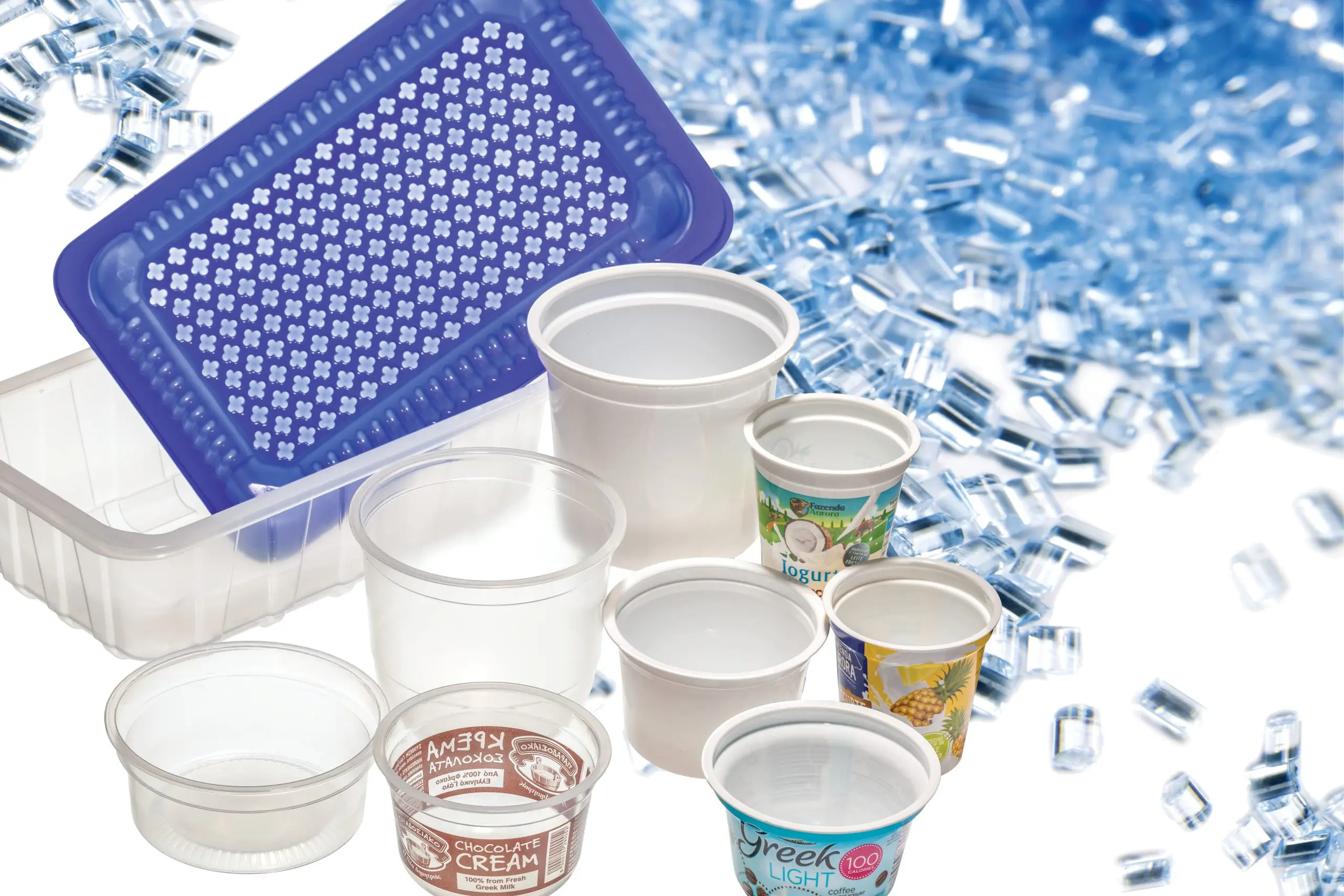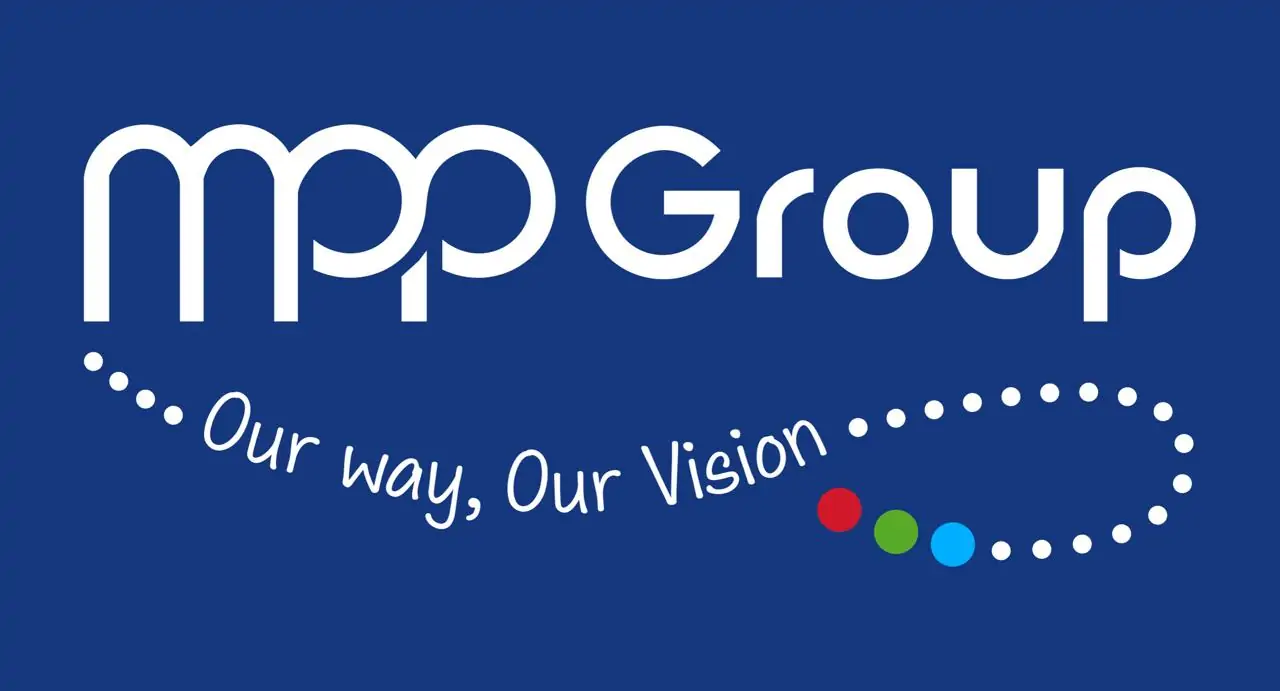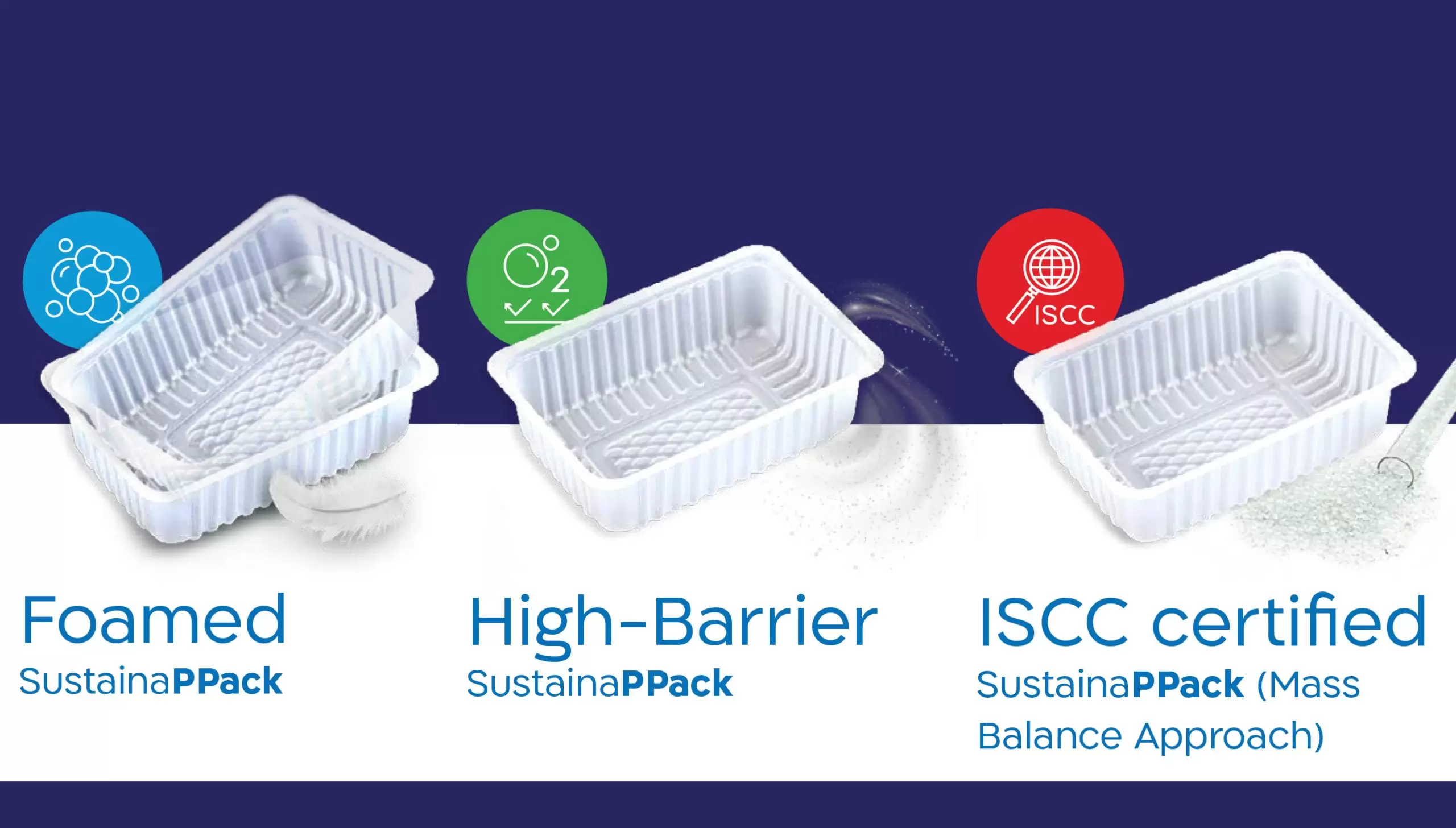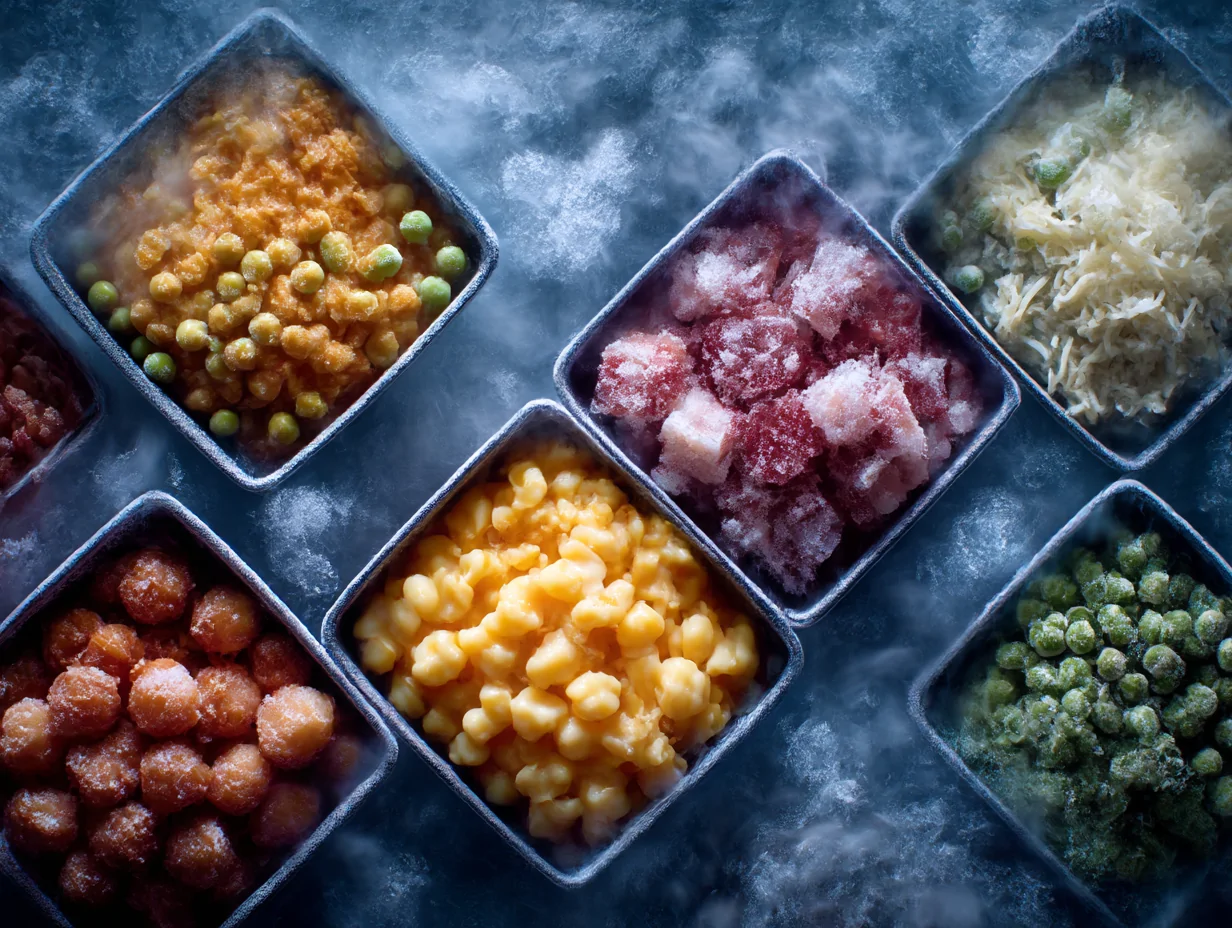For students of materials science and engineering, the significance of choosing the right material for a given application is one of the first fundamental lessons. MPP Group’s scientists and engineers use a variety of polymers and processes for our innovative solutions, each with its strengths and limitations. Let’s explore into some of those.
Our Polypropylene (PP) Trays and Cups: A Reliable and Versatile Option
Polypropylene is a notable material in our group’s portfolio, such as MPP and MCP trays and cups, as well as Polyraz films. Our PP products are microwave-safe, freezer friendly, and can be used in sterilization processes such as retort processing, pasteurization, and High-Pressure Processing (HPP).
The PP On-Tray is capable of withstanding temperatures ranging from 0°C to +125°C. The group offers options such as deep-freeze films or those with high barrier properties (Multi-Layered-PP). Our PP solutions are, however, not suitable for heating or cooking in conventional ovens.
We are also offering environmentally friendly products, including trays made from recycled used oil-based materials. Our new SustainaPPack series includes foamed PP trays and cups. These products are designed to be lightweight, with a weight and carbon footprint reduction of 10% to 30%, and are fully recyclable as mono-PP. They also offer enhanced insulation for both hot and cold food.
Polyethylene Terephthalate (PET): a popular choice for packaging
Polyethylene Terephthalate is another important polymer appearing in many of our products, such as our APET and CPET trays. Our APET trays are valued for their barrier properties, making them ideal for Modified Atmosphere Packaging (MAP). They are suitable for chilled or refrigerated foods, and their transparency allows for an attractive presentation of products on the shelf.
Our CPET trays offer strength and durability, and have a broad temperature range from -40°C to +220°C, making them freezer-friendly, microwave and oven-safe (dual ovenable). Being made from mono materials, these trays are also easily recycled in the common PET stream.
The RePET product line, which incorporates 30% to 80% rCPET, further exemplifies the group’s commitment to sustainability. These trays maintain the performance benefits of CPET while reducing the reliance on virgin materials.
However, our PET products are not without limitations. They are not suitable for use in toaster ovens or broilers due to their maximum temperature limit of 220°C. Despite this, PET remains a popular choice for packaging.
Polystyrene (PS): An Accessible Yet Challenging Material
Polystyrene, used in Polyraz films and MPP cups, is recognized for its ease of production due to its wide processing window, and its brittleness making it suitable for applications that require snapping.
The recycling of PS does present a challenge, as there are currently limited recycling streams available for this polymer. To mitigate this, the MPP Group has initiated efforts to recycle PS PIR in its facilities and has formed partnerships with dairies and thermoformers to recycle PS waste. In collaboration with the Tamir Recycling Corporation, MPP is also working towards establishing local recycling capabilities, aiming to reduce the environmental impact of PS.




